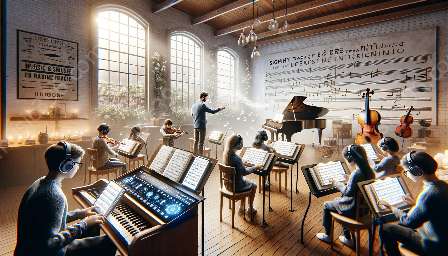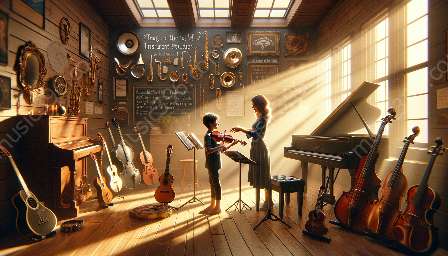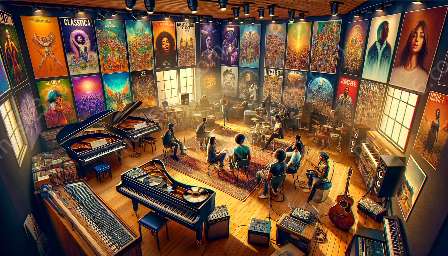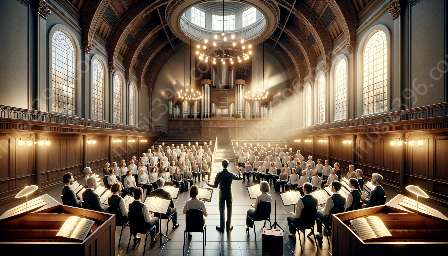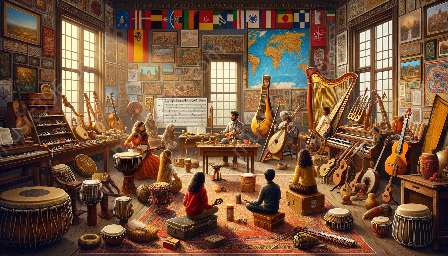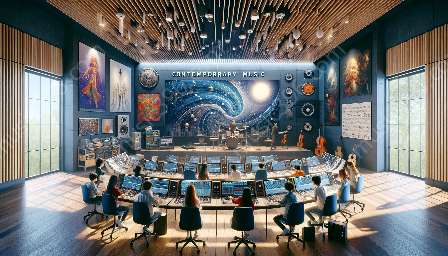Do you believe in the power of art and music to transcend boundaries and promote understanding? Cultural diplomacy through orchestration is a fascinating subject that delves into the ways in which orchestral music and arranging can be harnessed to foster connections, cross-cultural communication, and education. In this topic cluster, we will explore how orchestration supports cultural diplomacy, collaboration, and music education, shedding light on the interplay of orchestral music in various cultural contexts. Let's take a closer look at how the art of orchestration can serve as a conduit for meaningful interactions and learning experiences.
Orchestration and Cultural Diplomacy
Orchestration is often thought of as the craft of arranging and adapting musical compositions for orchestral performance. However, its impact extends beyond the realm of music—orchestration serves as a powerful tool for cultural diplomacy, promoting mutual understanding and dialogue between diverse communities. Orchestras can communicate the values, traditions, and sentiments of different cultures through their performances, fostering empathy, respect, and appreciation for the diversity of human experiences.
Through orchestration, cultural exchange programs can bring together musicians from various backgrounds to collaboratively interpret and perform music that represents their respective cultural heritages. This process not only celebrates the rich tapestry of global music but also facilitates connections and conversations that transcend language barriers. By engaging in joint orchestral performances, musicians can forge meaningful connections based on mutual respect and shared passion for music, cultivating an environment conducive to cross-cultural understanding and appreciation.
Examples of Cultural Diplomacy Through Orchestration
- International Collaborations: Orchestras from different countries collaborating on performances that showcase the unique musical traditions and compositions of each culture.
- Residency Programs: Musicians from diverse backgrounds participating in residency programs where they engage with local communities and schools through orchestral performances and educational initiatives.
- Cross-Cultural Commissions: Orchestras commissioning composers from various cultural backgrounds to create original works that blend elements of multiple traditions, fostering intercultural dialogue and creativity.
Orchestration and Music Education
Music education plays a pivotal role in the development of young minds, nurturing creativity, critical thinking, and cultural awareness. Orchestration serves as a dynamic component of music education, offering students opportunities to explore diverse musical styles, instrumentation, and cultural expressions.
Through orchestration, students can learn about the historical and cultural contexts of different musical traditions, gaining insights into the social, political, and creative forces that shape the evolution of music. By studying orchestral scores and arrangements, students can discover the complexities of musical composition and interpretation, honing their analytical skills and expanding their artistic horizons.
The Impact of Orchestration on Music Education
- Cultural Diversity: Orchestration enables students to engage with music from a wide range of cultural backgrounds, fostering an appreciation for diversity and promoting cultural literacy.
- Collaborative Learning: Through ensemble playing and orchestral rehearsals, students develop collaborative skills and teamwork, learning to communicate effectively and support each other in creating cohesive musical performances.
- Creative Expression: Orchestration empowers students to explore their creative potential by arranging music, experimenting with instrumentation, and developing their compositional skills, fostering individual artistic growth and self-expression.
Convergence of Orchestration, Cultural Diplomacy, and Music Education
In the intersection of orchestration, cultural diplomacy and music education, we witness the potential for transformative experiences and meaningful connections. Orchestration acts as a catalyst for fostering cross-cultural understanding and appreciation, serving as a bridge that connects individuals and communities through the universal language of music.
As we continue to explore the intricate tapestry of orchestration and its role in cultural diplomacy and music education, we gain insights into the transformative power of orchestral music in facilitating cross-cultural communication, celebrating diversity, and nurturing the next generation of musicians and global citizens.

